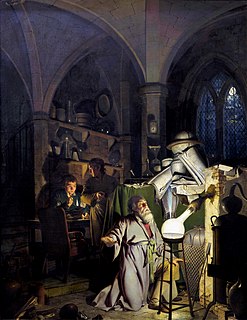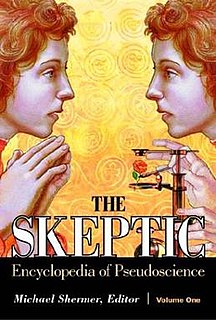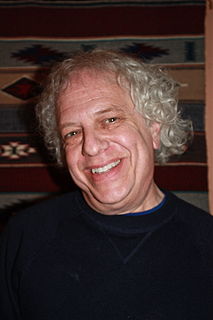Contributors
Advisors and Consultants Jerome Clark, Board of Directors, J. Allen Hynek Center for UFO Studies, Chicago; J. Gordon Melton, Research Specialist, Department of Religious Studies, University of California, Santa Barbara; Carl Mitcham, Professor of Philosophy and of Science, Technology and Society, Pennsylvania State University; Marcello Truzzi, Director Center for Scientific Anomalies Research and Professor of Sociology, Eastern Michigan University.
Contributors Daniel W. Conway, Lisle W. Dalton, R. G. Alex Dolby, R. Shannon Duval, Honor C. Farrell, Jeff Frazier, John E. McMillan, J. Gordon Melton, Terry O'Neill, Kenneth R. Shepherd, Steven Utley, Joyce Williams, William F. Williams.
About the editor
William F. Williams was formerly visiting Professor at the Department of Science, Technology, and Society at Pennsylvania State University, and was the William Weiss Fellow in Engineering from 1992 to 1993. He is also a Life Fellow at the University of Leeds, England. His publications include Are Science and Technology Neutral? (Butterworth), and he has served as editor in chief of the Science in a Social Context series (also for Butterworth). Williams resides in England.
Pseudoscience consists of statements, beliefs, or practices that claim to be both scientific and factual but are incompatible with the scientific method. Pseudoscience is often characterized by contradictory, exaggerated or unfalsifiable claims; reliance on confirmation bias rather than rigorous attempts at refutation; lack of openness to evaluation by other experts; absence of systematic practices when developing hypotheses; and continued adherence long after the pseudoscientific hypotheses have been experimentally discredited.

Parapsychology is the study of alleged psychic phenomena and other paranormal claims, for example related to near-death experiences, synchronicity, apparitional experiences, etc. It is considered to be pseudoscience by a vast majority of mainstream scientists, in part because, in addition to a lack of replicable empirical evidence, parapsychological claims simply cannot be true "unless the rest of science isn't."
In philosophy of science, there are several definitions of protoscience.

The Skeptic's Dictionary is a collection of cross-referenced skeptical essays by Robert Todd Carroll, published on his website skepdic.com and in a printed book. The skepdic.com site was launched in 1994 and the book was published in 2003 with nearly 400 entries. As of January 2011 the website has over 700 entries. A comprehensive single-volume guides to skeptical information on pseudoscientific, paranormal, and occult topics, the bibliography contains some seven hundred references for more detailed information. According to the back cover of the book, the on-line version receives approximately 500,000 hits per month.

The Committee for Skeptical Inquiry (CSI), formerly known as the Committee for the Scientific Investigation of Claims of the Paranormal (CSICOP), is a program within the transnational American non-profit educational organization Center for Inquiry (CFI), which seeks to "promote scientific inquiry, critical investigation, and the use of reason in examining controversial and extraordinary claims." Paul Kurtz proposed the establishment of CSICOP in 1976 as an independent non-profit organization, to counter what he regarded as an uncritical acceptance of, and support for, paranormal claims by both the media and society in general. Its philosophical position is one of scientific skepticism. CSI's fellows have included notable scientists, Nobel laureates, philosophers, psychologists, educators and authors. It is headquartered in Amherst, New York.
Remote viewing (RV) is the practice of seeking impressions about a distant or unseen target, purportedly "sensing" with the mind.
Paranormal events are purported phenomena described in popular culture, folk, and other non-scientific bodies of knowledge, whose existence within these contexts is described as beyond the scope of normal scientific understanding. Notable paranormal beliefs include those that pertain to extrasensory perception, spiritualism and the pseudosciences of ghost hunting, cryptozoology, and ufology.
A debunker is a person or organization that exposes or discredits claims believed to be false, exaggerated, or pretentious. The term is often associated with skeptical investigation of controversial topics such as UFOs, claimed paranormal phenomena, cryptids, conspiracy theories, alternative medicine, religion, or exploratory or fringe areas of scientific or pseudoscientific research.

Voodoo Science: The Road from Foolishness to Fraud is a book published in 2000 by physics professor Robert L. Park, critical of research that falls short of adhering to the scientific method. Other authors have used the term "voodoo science", but it remains most closely associated with Park. The book is critical of, among other things, homeopathy, cold fusion and the International Space Station.

Skeptic, colloquially known as Skeptic magazine, is a quarterly science education and science advocacy magazine published internationally by The Skeptics Society, a nonprofit organization devoted to promoting scientific skepticism and resisting the spread of pseudoscience, superstition, and irrational beliefs. Founded by Michael Shermer, founder of the Skeptics Society, the magazine was first published in the spring of 1992 and is published through Millennium Press. Shermer remains the Publisher and Editor-in-Chief of the magazine and the magazine’s Co-publisher and Art Director is Pat Linse. Other noteworthy members of its editorial board include, or have included, Oxford University evolutionary biologist Richard Dawkins, Pulitzer Prize-winning scientist Jared Diamond, magician and escape artist turned educator James “The Amazing” Randi, actor, comedian, and Saturday Night Live alumna Julia Sweeney, professional mentalist Mark Edward, science writer Daniel Loxton, Lawrence M. Krauss and Christof Koch. Skeptic has an international circulation with over 50,000 subscriptions and is on newsstands in the U.S. and Canada as well as Europe, Australia, and other countries.

The history of pseudoscience is the study of pseudoscientific theories over time. A pseudoscience is a set of ideas that presents itself as science, while it does not meet the criteria to properly be called such.

Massimo Pigliucci is Professor of Philosophy at the City College of New York, formerly co-host of the Rationally Speaking Podcast, and formerly the editor in chief for the online magazine Scientia Salon. He is an outspoken critic of pseudoscience and creationism, and an advocate for secularism and science education.

Kendrick Crosby Frazier is a science writer and longtime editor of Skeptical Inquirer magazine. He is also a former editor of Science News, author or editor of ten books, and a Fellow of the American Association for the Advancement of Science (AAAS). He is a fellow and a member of the executive council of Committee for Skeptical Inquiry (CSI), an international organization which promotes scientific inquiry.

In parapsychology and spiritualism, an apport is the alleged paranormal transference of an article from one place to another, or an appearance of an article from an unknown source that is often associated with poltergeist activity or séances. Apports reported during séances have been found to be the result of deliberate fraud. No medium or psychic has demonstrated the manifestation of an apport under scientifically controlled conditions.

Victor John Stenger was an American particle physicist, philosopher, author, and religious skeptic.

The Skeptic Encyclopedia of Pseudoscience is a two-volume collection of articles that discuss the Skeptics Society's scientific findings of investigations into pseudoscientific and supernatural claims. The editor, Michael Shermer, director of the Skeptics Society, has compiled articles originally published in Skeptic magazine with some conceptual overviews and historical documents to create this encyclopedia. It was published by ABC-CLIO in 2002.

Barry L Beyerstein was a scientific skeptic and professor of psychology at Simon Fraser University in Burnaby, British Columbia. Beyerstein's research explored brain mechanisms of perception and consciousness, the effects of drugs on the brain and mind, sense of smell and its lesser-known contributions to human cognition and emotion. He was founder and chair of the BC Skeptics Society, a Fellow and member of the Executive Council of the Committee for the Scientific Investigation of Claims of the Paranormal (CSICOP), now known as the Committee for Skeptical Inquiry. Associate editor of the Scientific Review of Alternative Medicine Journal as well as a contributor to Skeptical Inquirer, Beyerstein was one of the original faculty of CSICOP's Skeptic's Toolbox. Beyerstein was a co-founder of the Canadians for Rational Health Policy and a member of the Advisory Board of the Drug Policy Foundation of Washington D.C. He was a founding board member of the Canadian Foundation for Drug Policy and contributed to the International Journal of Drug Policy. According to long-time friend James Alcock, Beyerstein once addressed the House of Commons Standing Committee on Health during discussions leading up to the passage of the Controlled Substances Act". Along with his brother Dale, Barry was active "in the British Columbia Civil Liberties Association".

Kenneth L. "Kenny" Feder is a professor of archaeology at Central Connecticut State University and the author of several books on archaeology and criticism of pseudoarchaeology such as Frauds, Myths, and Mysteries: Science and Pseudoscience in Archaeology. His book Encyclopedia of Dubious Archaeology: From Atlantis to the Walam Olum was published in 2010. His book Ancient America: Fifty Archaeological Sites to See for Yourself was published in 2017. He is the founder and director of the Farmington River Archaeological Project.
A fringe theory is an idea or viewpoint which differs from the accepted scholarship of the time within their respective fields. Fringe theories include the models and proposals of fringe science, as well as similar ideas in other areas of scholarship, such as the humanities. The term fringe theory is commonly used in a narrower sense as a pejorative, roughly synonymous with pseudo-scholarship. Precise definitions that distinguish between widely held viewpoints, fringe theories, and pseudo-scholarship are difficult to construct because of the demarcation problem. Issues of false balance or false equivalence can occur when fringe theories are presented as being equal to widely accepted theories.

The Society for Scientific Exploration, or SSE, is a group committed to studying fringe science. The opinions of the organization in regard to what are the proper limits of scientific exploration are often at odds with those of mainstream science. Critics argue that the SSE is devoted to disreputable ideas far outside the scientific mainstream.













